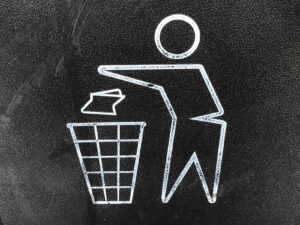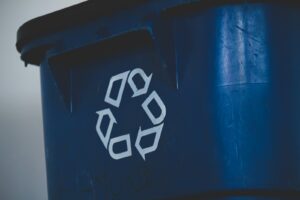Beachgoers have been urged this Bank Holiday weekend to take their rubbish home and keep Britain’s seaside resorts tidy.
During the 2017 Great British Beach Clean, run by the Marine Conservation Society, volunteer beach cleaners found 138 pieces of ‘on the go ‘ litter on average every 100 metres of beaches cleaned and surveyed.
However, with visitor numbers set to rocket this Bank Holiday weekend, it’s likely that these numbers will increase, putting pressure on the beach environment and marine wildlife.
In addition to this, a recent YouGov survey for Keep Britain Tidy’s its #StillLittering campaign, showed that more than one in four people admitted to ‘carefully’ littering: leaving packaging behind when eating or drinking on the go, further contributing to the problem.
‘In the past few decades we have become a society that consumes on the go, with all the packaging that goes along with it. If you buy something – be it a packet of crisps or a bottle of water – you buy the packaging as well and it is your responsibility to dispose of that packaging appropriately by recycling it or putting it in the bin,’ said Keep Britain Tidy chief executive, Allison Ogden-Newton.
‘There are no exceptions to this, especially on the beach where the marine environment is just metres away.’
A range of organisations believes that more can always be done to reduce the impact of pollution on our beaches and bathing waters and have been working together to raise awareness under the social media banner of #binit4beaches since 2013.
The Environment Agency, Defra and a range of organisations including the water sector, Keep Britain Tidy, Marine Conservation Society, Surfers Against Sewage and others are urging beachgoers to #binit4beaches and follow these simple steps:
• Reduce the amount of rubbish taken to the beach by switching from single-use plastics and packaging to reusable containers and bottles.
• Always remove your rubbish from the beach, and make sure litter is properly secured in bins to ensure it can’t be blown away.
• If the bins are full, take rubbish home and recycle it. Litter beside the bin is hazardous to wildlife and can easily be blown into the sea.
















